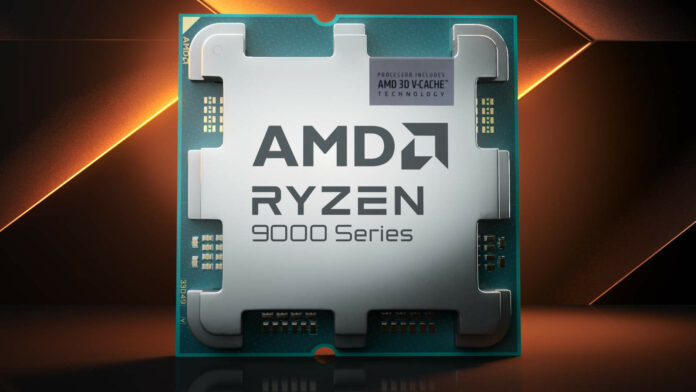With AMD Ryzen 9000 CPUs finally on our doorstep, accompanied by lofty promises of efficiency, eyes immediately turn to when we’ll get Team Red’s coveted 9000X3D cache models. Fortunately, it shouldn’t be a long wait at all, as the current timeline has the processors landing on shelves in just a few months.
Our source on the Computex show floor tells us AMD plans to launch 9000X3D processors in September. This matches the staggered release of X870E motherboards that we anticipate will arrive the same month. There’s no hard indication of which CPUs will arrive first, but an educated guess from historical releases suggests it’ll likely start with Ryzen 9 9950X3D and possibly Ryzen 9 9900X3D.
There was a level of confidence behind our source’s words, and they’re trustworthy enough to put stock into. That said, familiarity with how nebulous AMD’s launch schedules are urges taking this with a pinch of salt. Nothing’s confirmed until you have a sample in your hand as dates can easily change.
If the company sticks to the plan intimated by our source, then this is a marked time-to-market improvement over past releases that shows Team Red is getting quicker in its turnaround. Ryzen 9 7950X3D took exactly five months to follow 7950X, while this will be just two months counting from Ryzen 9000’s July release.
Ryzen 9000X3D specs remain a question mark. All models, whether it’s revisiting the older generation with 5800X3D or the current-gen 7950X3D, currently sport 64MB of 3D V-cache on top of their normal L3 allocation. This would put 9950X3D at the same 128MB as its immediate 7000 Series predecessor.
Of course, it’s likely AMD is working on other ways to improve X3D implementation to make its upcoming line-up the best CPUs money can buy. Rather than plonking the same cache on top of new chips, it could fine-tune how Zen 5 interacts with the feature, or perhaps inflate it even further. Only time will tell, and we’ll keep our ears to the ground while we wait to hear more.
